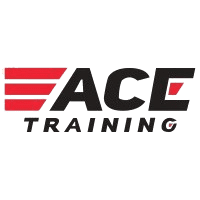
This role has a moderate level of AI exposure. AI can enhance efficiency for some tasks, but this job still relies on human skills and decision-making.
Explore all careersConservation Officers create and manage initiatives to safeguard the environment and natural resources through community engagement and fieldwork.
Get qualified to work as a Conservation Officer with a course recognised across Australia. Speak to a training provider to learn more.












Salaries for Conservation Officers start at $60,000 per annum and increase as you obtain university qualifications and experience in the field.
 Courses.com.au Team
Courses.com.au Team
There are approximately 4,200 Conservation Officers employed in Australia right now. They are often employed by Councils and government agencies as well as non-profits and (sometimes) industrial organisations. There are opportunities for Conservation Officers to work as independent consultants.
 Courses.com.au Team
Courses.com.au Team
You can get started as a Conservation Officer with either a VET qualification or Bachelor’s degree. Suitable qualifications include the Diploma of Conservation and Ecosystem Management, Diploma of Conservation and Land Management, Bachelor of Environmental Science, or the Bachelor of Science (Conservation Biology). Some Conservation Officers who are engaged by local government Councils to carry out auditing and compliance activities start their career with the Certificate IV in Government Investigations and develop knowledge of environmental legislation applicable to their state or territory.
Source: Australian Government Labour Market Insights 2023
 Courses.com.au Team
Courses.com.au Team
Browse occupations related to Conservation Officer



Explore the diverse range of Conservation Officer courses in Melbourne designed for aspiring professionals in the conservation field. Whether you are starting fresh into your career or seeking to elevate your existing skills, Melbourne offers a plethora of training options. With courses from reputable providers, you can gain the knowledge and expertise needed to make a meaningful impact on the environment.
For those new to the industry, there are beginner courses such as the Certificate III in Wildlife and Exhibited Animal Care and the specialized course on Apply Poison Baits for Vertebrate Pest Control in Rural and Environmental Landscapes. These courses equip learners with critical skills, setting a strong foundation for a successful career in conservation. All training providers, such as the Taronga Training Institute and ACE, are recognised and offer quality training in Melbourne.
For experienced professionals, advanced courses like the Advanced Diploma of Conservation and Ecosystem Management and various Bachelor of Science degrees cater to those aiming for higher qualifications. Institutions such as La Trobe University and The University of Melbourne offer invaluable programs that are respected across the industry, ensuring you acquire the skills necessary for advanced career prospects.
Connecting with the local environment is vital, and pursuing Environment and Sustainability courses in Melbourne lets you engage directly with the unique ecological challenges facing the region. You can also explore specialized programs in Conservation and Land Management and Environmental Management to further establish your niche in the conservation sector.
With 11 tailored Conservation Officer courses in Melbourne available, learners of all backgrounds can find the ideal path to advance their careers. Connect with top training providers, and make an essential contribution to preserving our natural and urban environments. The journey towards becoming a Conservation Officer begins here, and each course brings you closer to making a positive difference in our world.